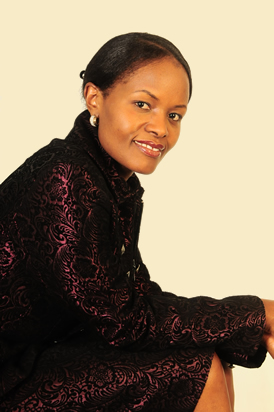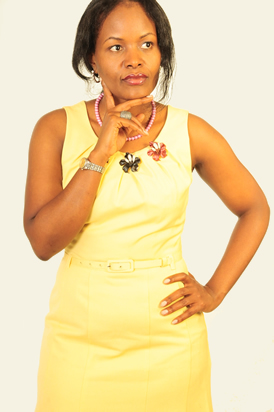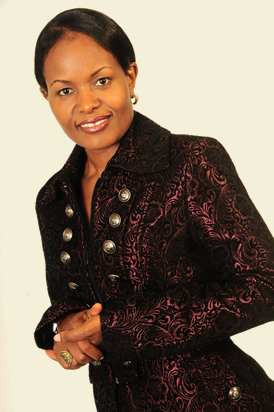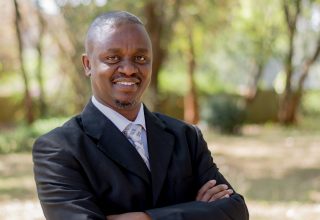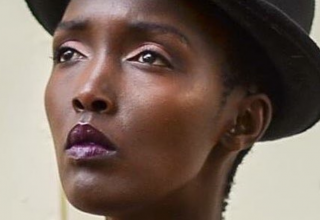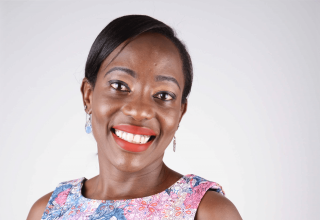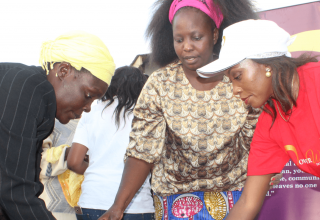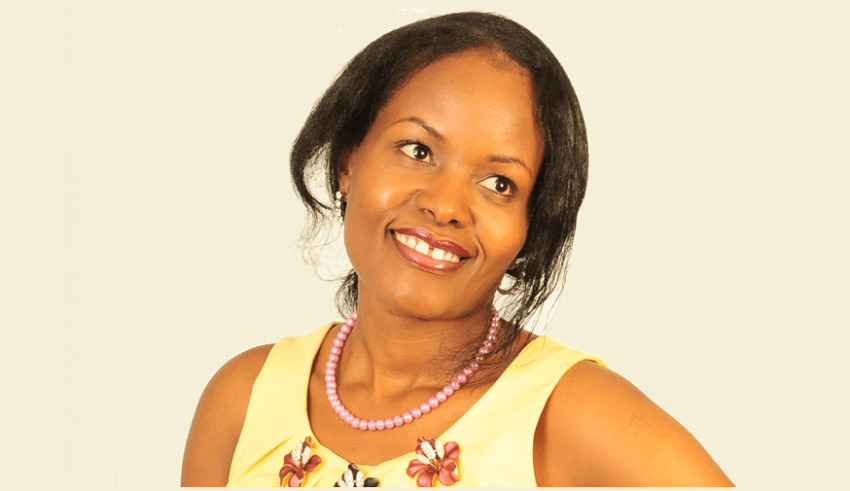
When Laimani first begun the famous Alabastron program she wanted to create a place where women could be themselves without judgement and prejudice, and work on being the best version of themselves. The men would have none of it though, so they quickly began a campaign of their own. #BringBackOurWomen, they cried, as they marched down the streets of Social Media Town in organised groups. They felt that Laimani had taken their women, bundled them up in some castle, with very high windows, and in only what can be described as a gruelling battle ground, taught them how to fight back their men and eventually leave them.
“I remember when my wife came back home after a two-day retreat. I quickly ran to the corner of the living room, ready for battle. We kept assessing each other like we were in a wrestling ring, and at the back of my mind, I was waiting for a pre-recorded version of Laimani saying ‘Ding!’ then in a thunderous voice, shouting ‘Round one!’” Mike tells me as he laughs hysterically remembering that day as if it were yesterday. “I thought he was running insane”, his wife Makena chips in, as she stares lovingly into his eyes; proof that her going through the program wasn’t half as bad as Mike had thought. “I needed to do this for myself,” Makena quietly says, as Mike nods in understanding. We were having the chat waiting to meet Laimani at the reception of the Alabastron Network Trust.
Laimani Bidali is the Founder and Lead Coach of Alabastron Network Trust and author ofRenewing Self – a personal Safari manual. Years into Alabastron, she launched her TV show, My Unspoken. It was dubbed a Kenyan version of the Oprah talk show and was an instant success. The Men March was long forgotten!
Laimani describes herself as “a woman in heels, serving a high God, and going to high places.” She keeps her hair natural and she is single; not really looking but alert to what this year has in store for her. To unwind, she reads books or enjoys a dance with her friends. Every first Tuesday of the month, Laimani uses the Udada Global forum to talks to women about the broken stories that they have carried over the long haul, and how those stories affect their lives in the workplace, in the family and in all the spaces they occupy.

The Broken Story
Laimani insists that how women tell their story is important. “For years, we have told certain stories to ourselves and listened to society tell us stories about ourselves. Thus we have never really embraced our true story,” she says. She gives a few examples.
#1: Women are gossipers. We have heard it said, ‘When three women are seen together in the corridor halls of an office, they are gossiping, but when three men are seen together in that same hall, they are having a meeting!’ “Women are good at exchanging ideas,” Laimani counters. “We are good at sharing information with one another, and this is not something to be ashamed of.”
#2: Women are horrible bosses. Ah, this one hits closer home no? Given the serious rise of girl bosses over the recent years, you may be nodding as you may have been under a female boss before you branched out to be your own boss; and you probably thought that too, right? According to Laimani, the result is that most women are afraid to make it to the top. They fear being labelled a horrible boss and shrink back from taking a position for fear that they may be carrying the ‘bad boss gene’.
#3: A successful woman in the boardroom cannot be successful at home. Before the rise of the greats like Sheryl Sandberg, CEO of Facebook, it was believed that a good woman focused on keeping her home, not climbing the corporate ladder. Those who have gotten to the top were said to have broken marriages and broken homes. This story has kept women from elevating for fear of having a fallen marriage. They tend to reduce their workactivities to focus more on the children and the husband.
#4: A woman who has climbed the highest ladder must have slept her way up there. We have heard rumours thrown left, right and centre on some top female influencers. However Laimani believes that men take their success at work seriously and that none of them would allow an incompetent woman to climb to the top.
#5: Women are emotional. “Women have this one thrown at them several times. Some women have been rendered incompetent to handle certain roles due to their emotional nature. “So we miss out as women, especially emotional women. But what is an emotion really?” Laimani retorts. She doesn’t see the reason why only women get labelled, yet men do express their emotions too, albeit differently than women.
#6: Women are their own worst enemies. In the recently concluded USA elections, women rallied up behind Hillary Clinton. Closer home, women rallied up behind Martha Karua. “We own our own. However the negative aspect of this is what society tends to focus on,” laments Laimani, who believes that we still need to do more work in encouraging women to support other women in leadership positions.
Laimani wants people to realise that the tendency of judging women harshly, branding them as aggressive or wrongly accusing them of attacking men leads to an increasingly severe self-judgement. And those stories change women, shape them and, in one way or another, play an important role in the decisions they make in their lives. “The role of Udada Global is to demystify these stories that we have held on, and have actually believed about ourselves. Udada forums help us realise that our story is broken; and that to be women leaders we need to change it,” she says.
So what is Udada?
“If you have ever attended an Alabastron session, you walk away with what should be every woman’s mantra, ‘Cover each other’s nakedness with love.’ It’s another way of saying ‘Don’t throw another woman under the bus and for heaven’s sake, if you see her walking down the street battered, bruised and naked, take off your shirt and give it to her.’ Literally. And that is what we amplify in Udada,” says Laimani.
Udada Global wants to be a worldwide revolution for awakening a fresh connection amongst women to restore their spiritual, relational, social and economic health for thriving communities. It is a refreshing way to reconnect as women and to live joyful and fruitful lives. Nothing complicated, just creating a space for women to support each other. Udada is coined from Kiswahili and could be translated in English as ‘sisterhood.’ Udada circles are all around Nairobi town, and easy to join. The Udada Global team is made up of a small full time secretariat of three people and approximately 12 volunteers.
Udada happens every first Tuesday of the month at the All Saints cathedral from 5:30pm – 8:00pm. Entrance is free. All Saints is located at the heart of Nairobi, is accessible and has ample parking. The next time you feel wiped out and down, and need some sisterly love, walk into an Udada meeting and enjoy the experience.
For now Udada is more of a women’s forum. However once in a while, men are invited. “We like to hear their perspective in some areas,” observes Laimani. “Men joined us for the forum we had in February this year. It was an enlightening experience, where we got to understand how ego plays an important role in a man’s life, and how they are actually driven to compete with each other!”
Udada is different from Alabastron in that Alabastron is a 12-week program that works on renewing self. When you are doing Alabastron you solely focus on yourself. You unpack the baggage you have carried for years, habits and menaces you have picked up from your past, to be the best you can possibly be. And the program comes at a fee.
Udada is free of charge and takes place monthly. Women talk about their different broken stories and their effect on them, and how they can change their narrative. Udada is also about women helping each other. “We believe that when a woman has sorted her inside, it shows on the outside, says Laimani. “She feels good about herself and in turn works towards supporting another woman and walking with her.” You don’t have to have done Alabastron to attend an Udada meeting. Started in September 2015, Udada programme is well into its second year.
What are Udada Circles?
“Any woman next to you anywhere is your sister. Whether in your neighbourhood, in a bus, in the office or in church; you must reach out to her with the light of love,” says Laimani. Udada Circles enable women to connect with one another in various spaces and to continue fellowship in the spaces they represent.
Asked what her secret is for build successful brands over the years, Laimani’s first response is hearty laugh. Refusing to attribute her success to herself, she believes that God has been at the centre of all her thoughts and plans. Laimani also recognises the many women who, having gone through the Alabastron program, easily identify with it and champion the cause as they want the brand to grow. “That brings me so much joy,” she says. “I have discovered that when you help others, they help you back.”
Laimani also focuses on her call. “I have been called to women. Whenever I see an issue with the women around me, I see an opportunity to address that issue, and in a way that would be attractive to them,” she reveals. “I think commitment to what I do gives me a laser sharp focus to thrive.”
Nothing has come easy for Laimani. When Alabastron was new, before people understood what it was all about, there was a lot of criticism about it. My Unspoken, her TV show, also got mixed reactions when it first begun to air. “People over the years have come to understand that I am not a bitter woman trying to ‘fix’ other women. I am rather a woman progressively working on and in myself towards significance and inviting other women to do the same,” says Laimani.
One illustration is how they began a campaign dubbed, ‘Step Up For Our Girls’ and sent out very nice invites for the same. Her team worked hard to put the word out, and got an overwhelming response. Many people promised to attend. However on the said day, only ten people showed up, and out of them four were staff members. Refusing to dwell on the disappointment, Laimani chooses to focus on the cause of Stepping up For Our Girls. “We learnt our lessons and this year we will do it in a better way,” she affirms.
Asked what keeps her moving, Laimani explains that her whyhas always been strong. “When a woman approaches me and says ‘Since you began the Udada forums, I have seen a difference in how I interact with other women’, or ‘My boss started coming for Udada and now she is more gentle in the office,’ that brings a smile to my face, and motivates me to wake up, get up, dress up and show up!”
In 20-year time, Laimani envisions that Udada will be a philosophy about how women treat each other; and Udada movement will be common place in most of the African Countries. To budding entrepreneurs, Laimani says “If you are working with women or serving women with your product or services, listen to them. They know what they need. Do not make assumptions or draw conclusions based on your own perceptions. Ask them, “What matters to you?”
In conclusion, Laimani launches a passionate call to women to show ‘Udada’ to one another. “Meet us every first Tuesday of the month and we will talk about how! Let the world see women in a different light. Let us bring a revolution with the love for each other! It’s our time women, don’t rise up alone. Hold another woman’s hand!”

Did you enjoy this story? Post a comment below and on our Facebook page or Twitter #MKAZILaimaniBidali
We like to hear from you.
Contact Udada Global
EMAIL | FACEBOOK | INSTAGRAM | TWITTER | WEBSITE
Telephone : +254717304120


